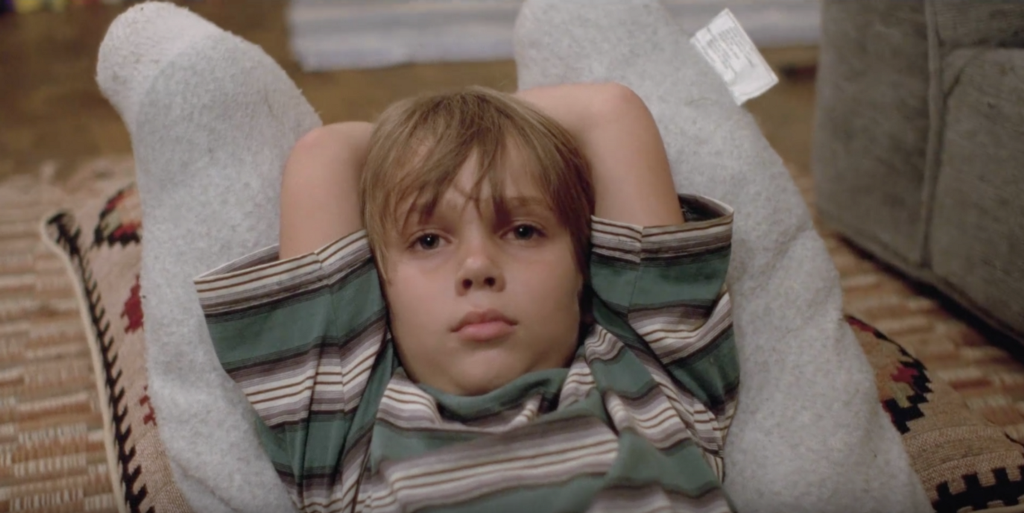Being Fine With Doing Nothing

My younger brother and I have few things in common, but he said something to me recently, while I was visiting over the holidays, that struck a chord. “When I’m not working at one of my part-time jobs,” he said, “I’m not really sure what else I’m suppose to be doing.”
“Well, what if you used that time to figure out how to find one job that will pay all your bills, instead of having to work three part-time jobs that you don’t really like and that don’t pay you enough?” I asked this knowing full well that this was a simple thing to say, but a difficult thing to do when you’re feeling unfocused and directionless.
“Easy for you to say—you already know what you want to do.”
It’s true that I am career-oriented and have a clear sense of purpose, and that I am very good at what I do. But when I’m not hard at work, it is also true that I’m not really sure what else I’m suppose to be doing.

Here is an example of what I’m talking about, embodied in a single sentence written by me to some colleagues on Slack, the communication tool that’s becoming increasingly popular at companies everywhere:

It’s a weekday afternoon, and I’m “off” on vacation for the holidays, but have logged into Slack to let my colleagues know that I’m “around” if they need me. They don’t need me, of course. Who am I, the President of the United States? Even the President takes a vacation. It’s 12:31 p.m. and I should be at lunch somewhere, eating a burrito, and having a margarita. And yet.

I’m not one of those people who desires to retire early because I like what I do, but also because thinking about having all that free time gives me anxiety.
My friend Lar is the opposite of me; we are both editors with respectable jobs, but given the chance, he’d retire in a second. “I would be such a good retired person,” he once said to me. When I asked him how he would use his time, he described elaborate trips, tennis lessons, reading and researching things that interest him that have nothing to do with whatever he’s working on, and on occasion, absolutely nothing.
“Nothing?”
“Nothing.”
It is difficult to imagine that kind of nothingness. In his essay, “The Critic As Artist,” Oscar Wilde wrote:
“Let me say to you now that to do nothing at all is the most difficult thing in the world, the most difficult, and the most intellectual.”
There are numerous books and articles written about the joy, art and importance of doing nothing. Naturally, you are doing something when you are doing nothing, whether it’s closing your eyes and meditating, as one article suggests, or waking up and going about your day without any obligations.
When my friend Lar talks about doing nothing in retirement, he’s talking about the freedom to choose to not do anything on any particular day—a freedom from requirements, to be able to do whatever compels you in any moment in time. Doing nothing might mean sitting quietly with the people you love, or taking a walk in the park just to feel the warmth of the sun, or visiting the farmer’s market just to see what’s new. That does sound kind of nice.

When I was 10, doing nothing meant making paper airplanes, setting up dominoes to be knocked over, lying on the floor of my bedroom with a flashlight searching for things that weren’t there. I was still young enough to think of doing nothing as something very simple, a time that I had to fill when school was out and there was no more homework to be done. I had not yet become encumbered with the trappings of adulthood when doing nothing had become to mean being unproductive, and being unproductive could have negative consequences on your career, finances, and relationships.
The version of myself I’d like to see in the coming year is someone who remembers that it’s impossible to be productive all the time. There is a kind of self-care in doing nothing. I need to remember what it’s like to be 10 again.
This article is part of The Billfold’s 2015 end-of-year series, “Our Best Selves in the Coming Year.”
Support The Billfold
The Billfold continues to exist thanks to support from our readers. Help us continue to do our work by making a monthly pledge on Patreon or a one-time-only contribution through PayPal.
Comments